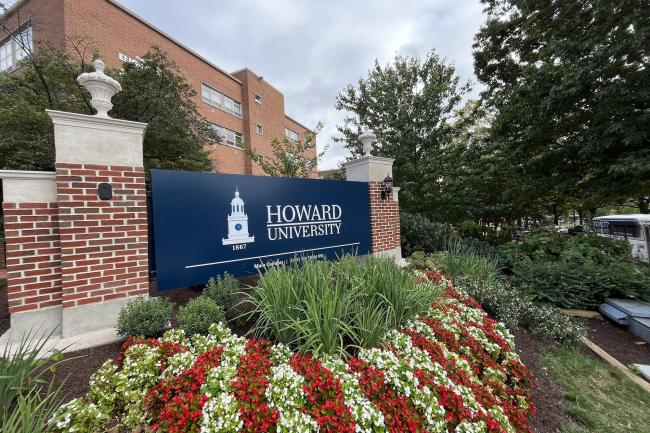Last week, members of Howard University’s AI Advisory Council and its related subcommittees shared details on the status of the university’s AI Initiative and how the campus community is integrating the technology in several key areas at the “AI Initiative Town Hall” meeting.
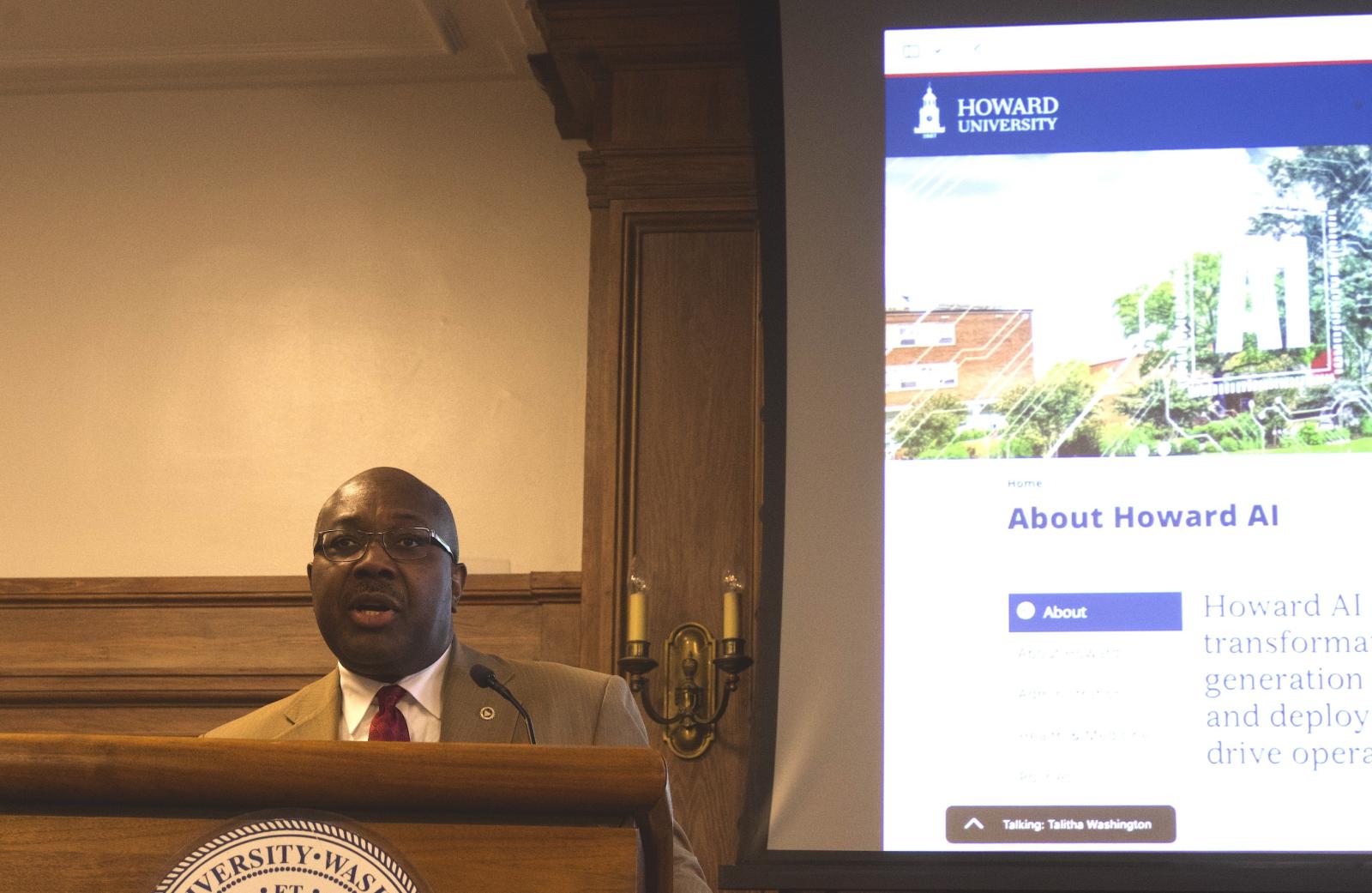
The event speakers provided updates on the work that’s been underway since the initiative launched in 2024. Dr. Anthony Wutoh, the university’s provost and chief academic officer, co-chairs the AI Advisory Council and shared the overall goals of the AI Initiative.
“I want to make sure we’re providing educational opportunities to our students, faculty, and staff, and we’re creating innovative new programs,” said Wutoh. The initiative is one of the ways that the university is “implementing AI in a way that will help us be more efficient in our university processes,” he added.
Dr. Talitha Washington, executive director of Howard’s Center for Applied Data Science and Analytics and co-chair of the council, organized the event and provided an overview of the university’s institutional roadmap to leverage AI technology.
She emphasized that “AI should enhance and shouldn’t replace our core elements of teaching, learning, and research.”
Howard’s New AI Certificate Program
One of the major strides of the AI Initiative includes the forthcoming launch of the university’s AI certificate program, slated to begin next fall. Dr. Kenneth Anderson, associate provost for undergraduate studies, explained that the certificate program will target current undergraduate, graduate, and professional students.
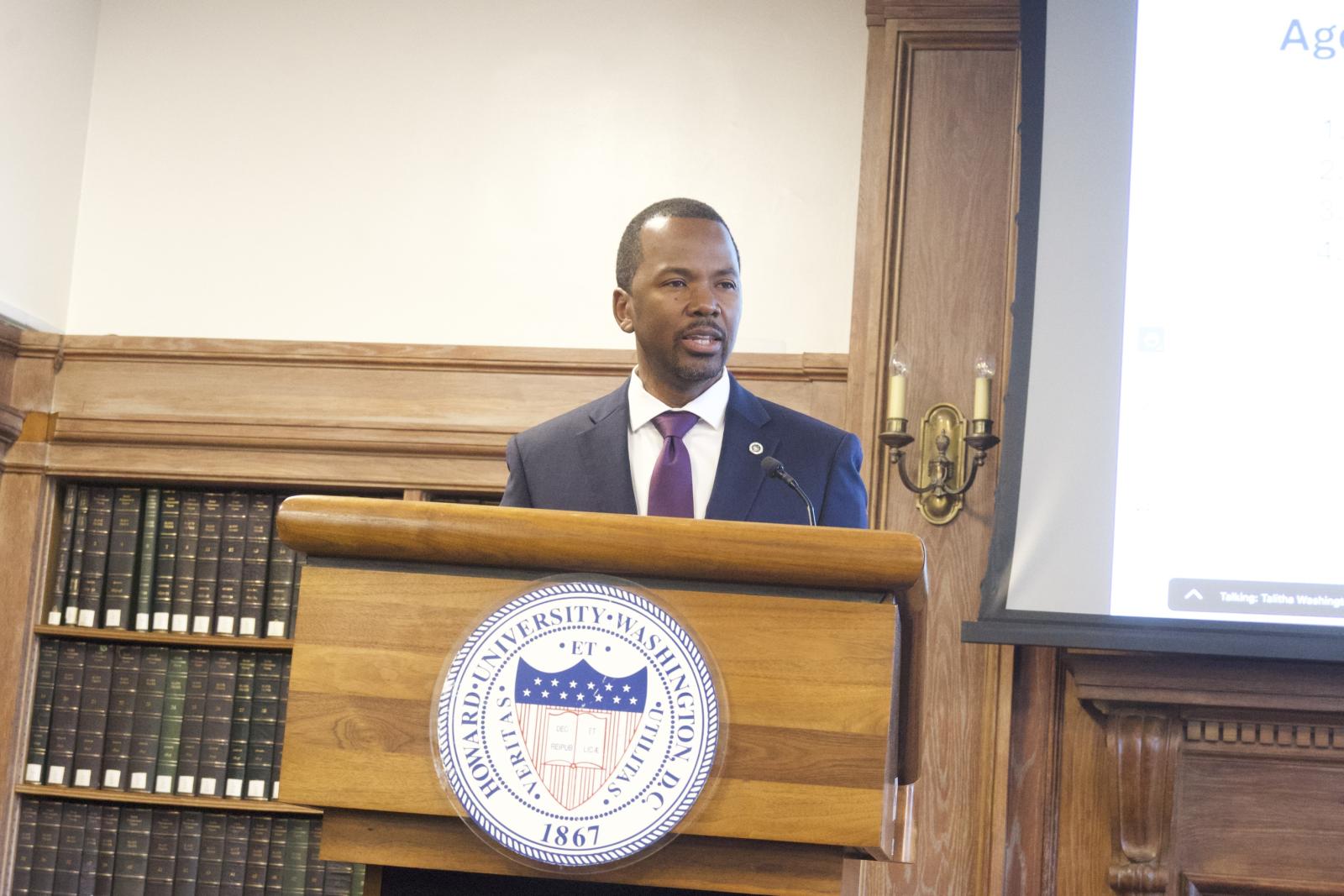
“Our goal is to allow the certificate courses to count towards a degree or a practicum, so we’re not trying to create additional barriers for students to complete this,” said Anderson, who is the chair of the council’s AI Capacity and Expertise subcommittee.
Anderson and his subcommittee team held an AI curriculum workshop earlier this month to gather feedback from faculty members on what the AI certificate program should include.
“We heard over and over again from faculty that [they] need more training, resources for training, and infrastructure support,” he explained. “Faculty favored three key courses for the certificate program: introduction to AI tools and techniques; ethnical and responsible AI; and AI in the disciplines.”
The University’s AI Policy
Dr. Kweli Zukeri, assistant vice president of web innovation and strategy, leads the council’s AI Strategy and Governance subcommittee and provided updates on the group’s work to develop Howard’s official AI policy. He explained that the policy is currently being finalized and will largely focus on AI use in four functional areas: teaching and learning; research and scholarship; engagement and partnerships; and AI use in work-related activities.
Zukeri’s subcommittee focuses on setting the university’s direction and providing guidance on integrating AI in a responsible way, especially as the technology continues to evolve.
“The AI policy does not intend to speak to everything, it’s a high-level broad overview,” said Zukeri. “We’re solving for preparedness amidst the rapid pace of new AI tools and saturation. We need to be holistic and optimistic but at the same time be inquisitive and skeptical. When it comes to people of African descent, a lot of these technologies have been used to act on us and not for us. Authenticity is so important in this space and how we’re improving these technologies especially for the Black community.”
Zukeri referenced how the Howard-led “Project Elevate Black Voices,” a collaboration with Google, is working to address inequities in AI speech recognition for Black users. To be more informed on how to approach developing the university’s AI strategy, Zukeri and his team administered a campus wide AI survey to students, faculty, and staff earlier this year.
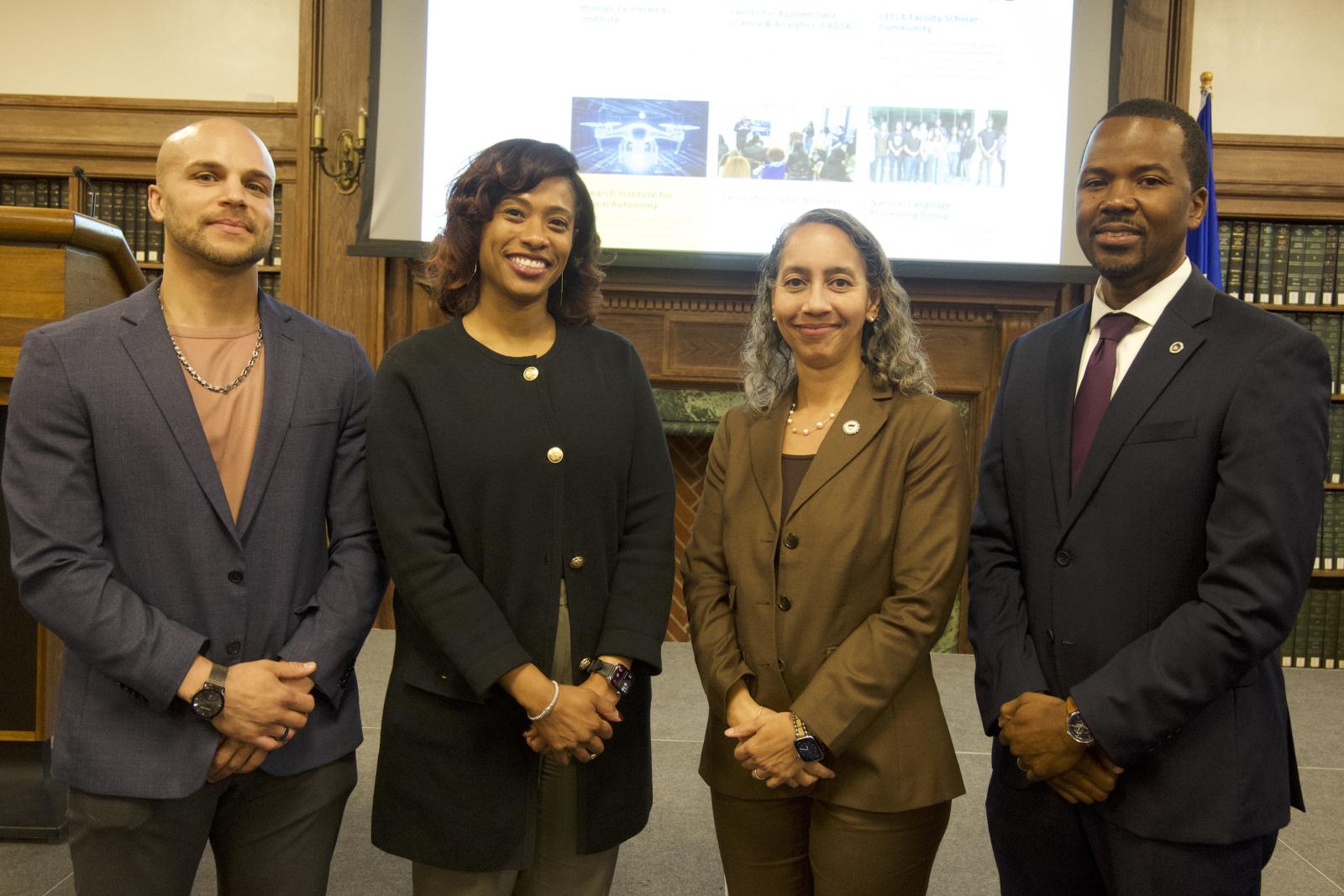
Several notable themes emerged from respondent feedback, including students expressing concerns about overreliance on the technology, academic integrity, and environmental impact. Faculty and staff respondents were also concerned about academic integrity, as well as policy clarity, concerns around data privacy, infrastructure, and responsible use.
Expanding Corporate Partnerships
Dr. Allison Bryant, vice president of corporate relations, expounded on the university’s ongoing corporate partnerships with “companies who believe in the responsible (or ethical) use of AI.”
Bryant is chair of the AI Infrastructure and Partnerships subcommittee and worked with the university’s Enterprise Technology Services team to determine the resources Howard will need to integrate and implement various AI tools.
“Understanding what the gaps look like allows us to make targeted requests not just for software or hardware, but also for the requisite bandwidth to be able to run these systems appropriately, so there’s work to be done there,” said Bryant.
She explained Howard’s partnership with OpenAI, an AI research and development company that created popular tools such as ChatGPT and DALL-E. The university is one of 15 partnering institutions that make up OpenAI’s NextGenAI consortium, an initiative aimed at accelerating AI research and education. Earlier this year, Howard was awarded a $2.25 million grant from OpenAI to continue its AI research and development.
“We’ll be launching a mini grant request for proposals for folks to be able to do research in the AI space, and for those who are looking to develop new models or other products using that platform. We’re looking to launch the call for applications at the top of next year,” Bryant shared.
In addition to partnering with Google and OpenAI, Howard has also collaborated with Microsoft on expanding AI education for students. Last month, a team of Howard students secured a first-place win at the inaugural Microsoft AI Policython. Organized by the Black at Microsoft – DMV Chapter, the contest challenged students from Howard, the University of the District of Columbia, and Coppin State University to tackle real-world issues revolving around AI as they prepared and pitched policies based on hypothetical scenarios. Working directly with mentors from Microsoft, the teams gained invaluable experience in all stages of policymaking, from identifying an issue to researching, drafting, and defending a solution in front of real-world experts.
Photos by Adriana Fraser, Howard University Office of University Communications
Keep Reading
-
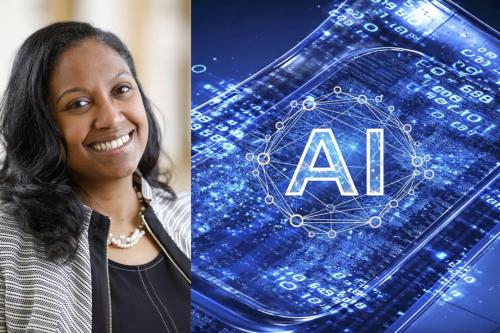 Artificial Intelligence
Artificial IntelligenceHoward University and Bowie State partner on $4M initiative to Build AI Literacy
Jan 15, 2026 4 minutes -
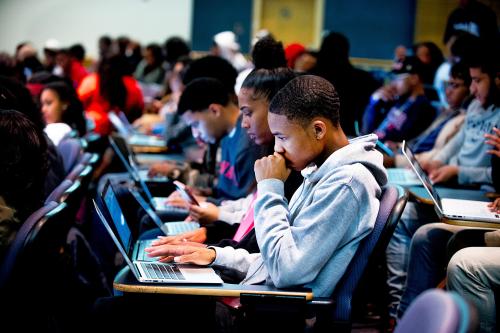 News
NewsNew AI Courses and Partnerships Signal Latest Push in Howard’s AI Initiative
Jan 14, 2026 4 minutes -
 Student Athletes
Student AthletesHoward Football to Open 2026 Season on National Stage at Cricket MEAC/SWAC Challenge
Jan 23, 2026 3 minutes
Find More Stories Like This
Are You a Member of the Media?
Our public relations team can connect you with faculty experts and answer questions about Howard University news and events.
Submit a Media Inquiry

